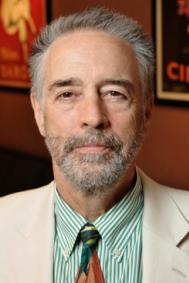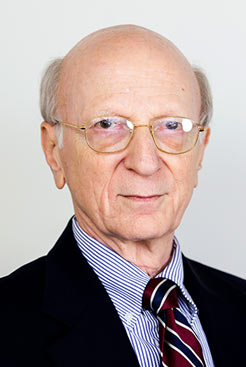|

|
“One consistent thread in Trump’s foreign policy views is ‘America First,’ a failure to recognize the re-balancing taking place in global politics, and hostility to multilateral agreements. Multilateralism is inevitable when the U.S. no longer can, nor is trusted, to write the international rules. Exiting TPP, the Paris Accord, and threatening the Iran nuclear agreement all deny this reality. Do not expect much change in this “attitude,” despite what is said in the U.N. speech.”
– Gordon Adams, Distinguished Fellow, Stimson Center
|
|

|
“President Trump is right to deliver a dose of tough love to the U.N., but his objectives will not be advanced by backing away from the responsibilities the United States has in maintaining global stability. Withdrawing from international agreements on climate and nonproliferation, reducing support for international peacekeeping missions, and elevating nationalist rhetoric will all work against the global burden-sharing the president rightly seeks. The United States cannot be expected to bear the burden of global order alone, but genuine American engagement and leadership is required to inspire other states to step up.”
– Brian Finlay, President and CEO, Stimson Center
|
|

|
“U.N. bureaucracy is always an easy target, and of course the organization could use significant reform. But a lack of moral courage from many governments — including the U.S. — deserves far more blame for U.N. failures historically than any bureaucratic bottlenecks. Moreover, despite the rhetoric about “smart cuts,” this White House has a track record of cutting budgets first and developing strategy later — an approach that will only make the U.N.’s problems worse.”
– Aditi Gorur, Director, Protecting Civilians in Conflict Program, Stimson Center
|
|

|
“Currently, the United States is pursuing critical foreign policy interests with American lives at stake in a multipolar world where other players wield considerable influence. Even “America First” objectives require no small amount of diplomacy to persuade others to share our strategic assessments and enlist their cooperation — whether NATO allies on Afghanistan, Gulf allies on Iran, or China, Japan, and Russia on North Korea. President Trump will have a unique platform at U.N.G.A. to marshal the support of these audiences. Hopefully he will seize it.”
– Sameer Lalwani, Co-Director, South Asia Program, Stimson Center
|
|

|
“President Trump’s inaugural U.N. speech may represent his clearest expression yet of an “America First” doctrine that favors disengagement over U.S. leadership in the service of global stability and prosperity. Fortunately, as many U.N. observers are detailing, Secretary-General António Guterres, and even President Trump’s own Ambassador in New York, Nikki Haley, recognize that American interests and values can be better served through active participation in and helping to modernize the world body.”
– Richard Ponzio, Director, Just Security 2020 Program, Stimson Center
|
|

|
“Trump will use the occasion to press for full implementation of U.N. sanctions against North Korea. Anger at Pyongyang is universal, including by China, so there is willingness to ‘do more.’ But while administration warnings that we are ‘running out of (negotiating) time’ or the next step is to turn things over to the Pentagon may spur some greater cooperation due to fear about the alternative, other nations are looking for determined and creative leadership from the U.S., not more bluster. The question is whether the president will deliver.”
– Alan D. Romberg, Director, East Asia Program, Stimson Center
|
|

|
“President Trump’s first statement to the U.N. General Assembly is an opportunity to reassert U.S. commitments to multilateral diplomacy and assuage the concerns of U.S. partners and allies. The United Nations, with all its faults, remains the primary multilateral forum to talk to other governments of the world — friend and foe alike — in constructive and diplomatic engagement. The U.N. is undoubtedly in need of reform, but President Trump can use the platform of the U.N.G.A. to affirm U.S. engagement while calling attention to pressing security issues.”
– Rachel Stohl, Director, Conventional Defense Program, Stimson Center
|
Contact: Jim Baird; [email protected] | 202.478.3413
|
|

Stimson Experts Preview Trump’s UNGA Speech
As President Trump prepares his major address to the U.N. General Assembly tomorrow, experts from the nonpartisan Stimson Center released the following statements previewing the speech, and examining U.S. and U.N. efforts to confront 21st century transnational threats:
“One consistent thread in Trump’s foreign policy views is ‘America First,’ a failure to recognize the re-balancing taking place in global politics, and hostility to multilateral agreements. Multilateralism is inevitable when the U.S. no longer can, nor is trusted, to write the international rules. Exiting TPP, the Paris Accord, and threatening the Iran nuclear agreement all deny this reality. Do not expect much change in this “attitude,” despite what is said in the U.N. speech.”
– Gordon Adams, Distinguished Fellow, Stimson Center
“President Trump is right to deliver a dose of tough love to the U.N., but his objectives will not be advanced by backing away from the responsibilities the United States has in maintaining global stability. Withdrawing from international agreements on climate and nonproliferation, reducing support for international peacekeeping missions, and elevating nationalist rhetoric will all work against the global burden-sharing the president rightly seeks. The United States cannot be expected to bear the burden of global order alone, but genuine American engagement and leadership is required to inspire other states to step up.”
– Brian Finlay, President and CEO, Stimson Center
“U.N. bureaucracy is always an easy target, and of course the organization could use significant reform. But a lack of moral courage from many governments — including the U.S. — deserves far more blame for U.N. failures historically than any bureaucratic bottlenecks. Moreover, despite the rhetoric about “smart cuts,” this White House has a track record of cutting budgets first and developing strategy later — an approach that will only make the U.N.’s problems worse.”
– Aditi Gorur, Director, Protecting Civilians in Conflict Program, Stimson Center
“Currently, the United States is pursuing critical foreign policy interests with American lives at stake in a multipolar world where other players wield considerable influence. Even “America First” objectives require no small amount of diplomacy to persuade others to share our strategic assessments and enlist their cooperation — whether NATO allies on Afghanistan, Gulf allies on Iran, or China, Japan, and Russia on North Korea. President Trump will have a unique platform at U.N.G.A. to marshal the support of these audiences. Hopefully he will seize it.”
– Sameer Lalwani, Co-Director, South Asia Program, Stimson Center
“President Trump’s inaugural U.N. speech may represent his clearest expression yet of an “America First” doctrine that favors disengagement over U.S. leadership in the service of global stability and prosperity. Fortunately, as many U.N. observers are detailing, Secretary-General António Guterres, and even President Trump’s own Ambassador in New York, Nikki Haley, recognize that American interests and values can be better served through active participation in and helping to modernize the world body.”
– Richard Ponzio, Director, Just Security 2020 Program, Stimson Center
“Trump will use the occasion to press for full implementation of U.N. sanctions against North Korea. Anger at Pyongyang is universal, including by China, so there is willingness to ‘do more.’ But while administration warnings that we are ‘running out of (negotiating) time’ or the next step is to turn things over to the Pentagon may spur some greater cooperation due to fear about the alternative, other nations are looking for determined and creative leadership from the U.S., not more bluster. The question is whether the president will deliver.”
– Alan D. Romberg, Director, East Asia Program, Stimson Center
“President Trump’s first statement to the U.N. General Assembly is an opportunity to reassert U.S. commitments to multilateral diplomacy and assuage the concerns of U.S. partners and allies. The United Nations, with all its faults, remains the primary multilateral forum to talk to other governments of the world — friend and foe alike — in constructive and diplomatic engagement. The U.N. is undoubtedly in need of reform, but President Trump can use the platform of the U.N.G.A. to affirm U.S. engagement while calling attention to pressing security issues.”
– Rachel Stohl, Director, Conventional Defense Program, Stimson Center
Contact: Jim Baird; [email protected] | 202.478.3413
Photo Credit: UN Photo